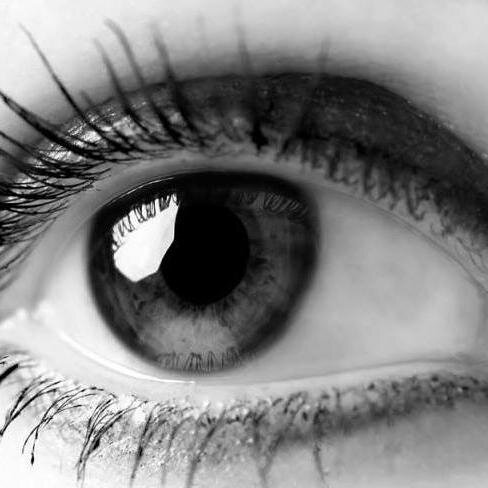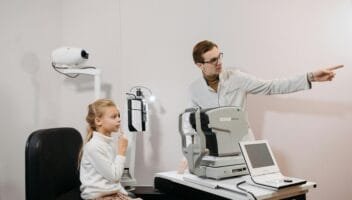Introduction
Welcome to Eugene, Oregon: A Hub for Quality Eye Care
Eugene, Oregon, a city known for its stunning natural beauty and vibrant culture, is also a hub for exceptional eye care. With a growing population and a strong emphasis on health and wellness, Eugene boasts a number of top-notch eye hospitals and clinics.
Regular eye exams are crucial for maintaining optimal eye health and detecting potential vision problems early on. Whether you’re dealing with a minor eye irritation or a serious eye condition, these top eye hospitals in Eugene have the expertise and technology to provide the highest quality care.
In this comprehensive guide, we’ll explore the top eye hospitals in Eugene, their specialties, and what sets them apart. We’ll also discuss factors to consider when choosing an eye hospital, common eye conditions treated in Eugene, and tips for maintaining healthy eyes.
Let’s dive in and discover the best eye care options in Eugene!
Factors to Consider When Choosing an Eye Hospital
When selecting an eye hospital in Eugene, it’s essential to consider several factors to ensure you receive the best possible care. Here are some key factors to keep in mind:
Expertise and Experience
- Board-Certified Ophthalmologists: Look for a hospital with board-certified ophthalmologists who have undergone rigorous training and have extensive experience in various eye conditions.
- Advanced Technology: A modern eye hospital should be equipped with the latest technology to diagnose and treat eye problems accurately.
- Specialized Services: Consider whether the hospital offers specialized services, such as pediatric eye care, geriatric eye care, or ocular oncology.
Patient Reviews and Testimonials
- Online Reviews: Read online reviews and testimonials to get a sense of the hospital’s reputation and patient satisfaction.
- Word-of-Mouth: Ask friends, family, and colleagues for recommendations.
Insurance and Financial Considerations
- Insurance Coverage: Check with your insurance provider to determine which eye hospitals are in-network.
- Payment Plans: Inquire about payment plans or financing options to make eye care more affordable.
- Transparent Pricing: A reputable eye hospital will provide clear and transparent pricing information.
Location and Accessibility
- Convenient Location: Choose a hospital that is conveniently located and easy to access.
- Parking and Accessibility: Ample parking and wheelchair accessibility are important factors to consider.
By carefully considering these factors, you can select an eye hospital in Eugene that meets your specific needs and provides the highest quality care.
Top Eye Hospitals In Eugene
Family Vision Center
Family Vision Center was established in October of 1986 by the merger of two practices which have been a long tradition in the Eugene/Springfield community since 1926. Dr. Tyler Cates became part of the practice in 1997 and was joined by Dr. Carrie Dunks in 2014. Dr. Dominic Lemas joined the practice as a full-time associate in 2018.
Fine, Hoffman & Sims
For more than 40 years have strived for excellence in a combination of areas: patient care, clinical research and teaching. Being experts at all three dramatically improves outcomes, surgical and otherwise, for their patients and for patients worldwide. Mission Statement: They are committed to providing the most technologically advanced, cost-effective and efficient, patient-centred care with the highest quality of professionalism.
Dale Rowe, OD – Oregon Eye Docs
Dr. Rowe has been in business in the Eugene and Junction City area for over 30 years. They base their practice on customer service and they strive to go above and beyond for their patients. Since they have been in practice for so many years a lot of their patients are like family and they strive to keep growing their family of patients.

Franz Optical
Dr. Lackman has practiced optometry for 27 years, having graduated from Pacific University, College of Optometry in 1986. He did an internship at the Washington State School for the Blind and the Grace Peck Clinic in Portland. He also did an internship at the Bremerton Naval Hospital. Dr. Lackman has been at Franz Optical since June of 1988 and is a member of The American Optometric Association, as well as The Oregon Optometric Physicians Association. His goal is quality vision care in a relaxed setting.
Your exam will not be rushed, and the time will be taken to explain and demonstrate your treatment options. Dr. Dittemore joined their practice in 2007, after relocating to the Northwest from the Midwest with her family. She received her undergraduate degree from U.C., Berkeley in 1986 and her Doctor of Optometry degree from the Southern California College of Optometry in 1990. She looks forward to meeting the eye care needs of you and your family.

Eugene Eye Clinic
Drs. Gross & Polansky and their Staff would like all of their patients to leave their appointments feeling confident that they have received the very best eye care available. It is the goal of their practice for their patients to feel at home in their office and comfortable with every aspect of their care.
Pacific Clearvision Institute
Providing medical diagnosis and surgical options, ClearVision completes the eye care picture. Together with your primary eye care doctor, they work to give you the best possible chance for your continued good vision and by doing that, allow you to keep living your life as you choose. They believe that the best eye care can be achieved by utilising both the professional services of the Ophthalmologist and Optometrist.

Absolute Laser MD
Absolute Laser MD was established out of a love for people and aesthetics. They have state of the art equipment and their staff has been extensively trained. They will help you pick the appropriate service for your particular needs. Call today 541-207-0077
Common Eye Conditions Treated in Eugene
Eugene’s top eye hospitals are well-equipped to diagnose and treat a wide range of common eye conditions. Here are some of the most common eye conditions treated in the are
Cataracts
Cataracts are a clouding of the lens of the eye that can affect vision. Symptoms of cataracts include blurry vision, halos around lights, and difficulty seeing at night. Cataract surgery is a common procedure to remove the cloudy lens and replace it with an artificial lens.
Glaucoma
Glaucoma is a group of eye diseases that damage the optic nerve, often leading to vision loss. Early detection and treatment are essential to manage glaucoma and prevent further damage. Symptoms of glaucoma may include gradual vision loss, tunnel vision, and difficulty seeing in low light.
Age-Related Macular Degeneration (AMD)
AMD is a common eye condition that affects the central portion of the retina, the macula. It can lead to blurred vision and difficulty with tasks like reading and driving. Early detection and treatment can help slow the progression of AMD.
Diabetic Retinopathy
Diabetic retinopathy is a complication of diabetes that affects the blood vessels in the retina. It can lead to vision loss if left untreated. Regular eye exams are essential for people with diabetes to monitor for early signs of diabetic retinopathy.
By seeking timely diagnosis and treatment from a qualified eye care professional, you can effectively manage these eye conditions and maintain good vision.
Tips for Maintaining Healthy Eyes
In addition to regular eye exams, there are several steps you can take to maintain healthy eyes and prevent vision problems. Here are some tips:
Regular Eye Exams
- Schedule Regular Check-ups: Even if you don’t have any symptoms, it’s important to schedule regular eye exams. The frequency of eye exams depends on your age, risk factors, and overall eye health.
- Early Detection: Early detection and treatment of eye conditions can help prevent vision loss.
Healthy Lifestyle Habits
- Balanced Diet: A diet rich in fruits, vegetables, and omega-3 fatty acids can promote eye health.
- Regular Exercise: Regular physical activity can improve blood flow to the eyes.
- Adequate Sleep: Getting enough sleep is essential for overall health, including eye health.
Protecting Your Eyes
- Sunglasses: Wear sunglasses that block both UVA and UVB rays to protect your eyes from harmful UV radiation.
- Safety Glasses: Wear protective eyewear when engaging in activities that may pose a risk to your eyes, such as sports or DIY projects.
- Computer Eye Strain: Take frequent breaks from computer screens to reduce eye strain.
By following these tips and seeking regular eye care, you can help maintain healthy vision throughout your life.
Conclusion
Choosing the right eye care provider is a crucial step in maintaining optimal eye health. By carefully considering factors such as expertise, patient reviews, insurance coverage, and location, you can select the best eye hospital in Eugene to meet your specific needs.
Remember, early detection and treatment of eye conditions are key to preventing vision loss and improving your overall quality of life. Regular eye exams are essential for monitoring your eye health and identifying potential problems.
When selecting an eye hospital, look for a facility that is equipped with state-of-the-art technology and staffed by experienced eye care professionals. A reputable eye hospital will prioritize patient satisfaction and offer a wide range of services, from routine eye exams to complex surgical procedures.
By taking proactive steps to protect your vision, you can enjoy a lifetime of clear and healthy sight.
FAQ
How often should I get an eye exam?
The frequency of eye exams depends on various factors, including age, risk factors, and overall eye health. It’s generally recommended to have an eye exam every one to two years for adults with no significant eye problems. However, people with certain health conditions, such as diabetes or a family history of eye disease, may need more frequent eye exams.
What are the signs of eye problems?
Some common signs of eye problems include:
- Blurred vision
- Eye pain
- Redness
- Excessive tearing
- Sensitivity to light
- Halos around lights
- Floaters
- Difficulty seeing at night
If you experience any of these symptoms, it’s important to consult an eye doctor promptly.
Can I prevent eye diseases?
While you can’t completely prevent all eye diseases, you can reduce your risk by adopting healthy lifestyle habits, wearing sunglasses to protect your eyes from UV radiation, and getting regular eye exams.
What is the best way to choose an eye doctor?
When choosing an eye doctor, consider the following factors:
- Expertise and experience: Look for a board-certified ophthalmologist or optometrist with a strong reputation.
- Patient reviews and testimonials: Read online reviews and ask for recommendations from friends and family.
- Insurance coverage: Check with your insurance provider to see which eye doctors are in-network.
- Location and accessibility: Choose a doctor who is conveniently located and easy to access.
By carefully considering these factors, you can find an eye doctor who can provide you with quality eye care.


